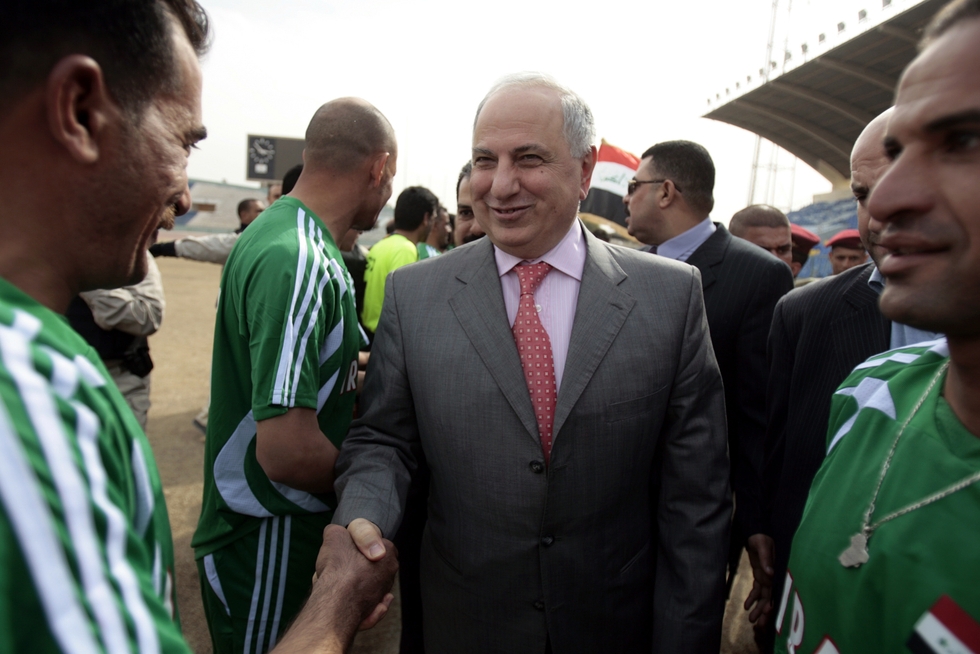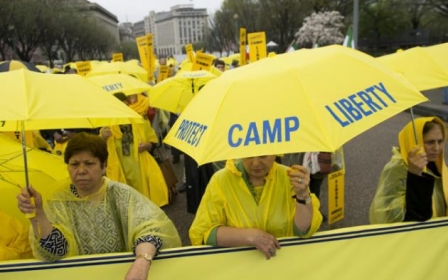Iraq war architect Ahmed Chalabi dies aged 71

Ahmad Chalabi, one of the driving forces in the 2003 US-led invasion of Iraq, died on Tuesday from a suspected heart attack, aged 71.
Haitham al-Jabouri, secretary of parliament's financial panel, which Chalabi had chaired, said he had been found dead in his bed in his Baghdad home.
Chalabi spent much of his life in exile lobbying Western governments to maintain pressure and sanctions against the government of Saddam Hussein.
His secular outlook and amiable demeanor made him a popular figure among Western lawmakers, though he never managed to build a following in his native Iraq.
In 1977 he founded the Petra Bank in Jordan, which later had to be bailed out by the Jordanian central bank to the tune of $350 million following accusations of embezzlement and false accounting.
In the early 1990s he established the Iraq National Congress (INC) and began receiving funding from the US to foment anti-Saddam activities. The Iraq Liberation Act, passed by the US congress in 1998, saw the group receive $8 million a year in funding.
In his most notorious act, Chalabi provided information about Saddam's alleged weapons of mass destruction to US security officials, information later proved to be false or exaggerated.
In a 2004 interview with the Telegraph, Chalabi said he had no regrets about the misinformation, as it had achieved his desired result.
"We are heroes in error," he said. "As far as we're concerned, we've been entirely successful. That tyrant Saddam is gone and the Americans are in Baghdad. What was said before is not important. The Bush administration is looking for a scapegoat."
Following Saddam's overthrow in 2003, he returned to the country, expecting to be handed the reins of power. However, he never managed to hold the top job, despite his best efforts and his INC failed to make a showing in parliamentary elections.
After falling out of favour with the US, he was later tipped in 2014 as a potential successor to Iraqi Prime Minister Nouri al-Maliki. However, his lack of a support base within Iraq eventually led to the job going to Haider al-Abadi of the Islamic Dawa Party.
His legacy is likely to prove controversial. While for some he was the leading Iraqi figure in ending the autocratic rule of Saddam Hussein, for others he will be remembered as a demagogue who was more than once caught with his hand in the till.
"Even for the Bush administration, Chalabi was too untrustworthy," wrote commentator Richard Seymour in the Guardian in 2014. "His name always came up whenever the subject was missing money in Iraq. He was too close to Iranian intelligence for someone who was supposed to be an asset. And when the administration tried to rein him in, he tilted briefly towards the Sadrists and decided he was against the occupation he had helped bring about."
Middle East Eye propose une couverture et une analyse indépendantes et incomparables du Moyen-Orient, de l’Afrique du Nord et d’autres régions du monde. Pour en savoir plus sur la reprise de ce contenu et les frais qui s’appliquent, veuillez remplir ce formulaire [en anglais]. Pour en savoir plus sur MEE, cliquez ici [en anglais].




